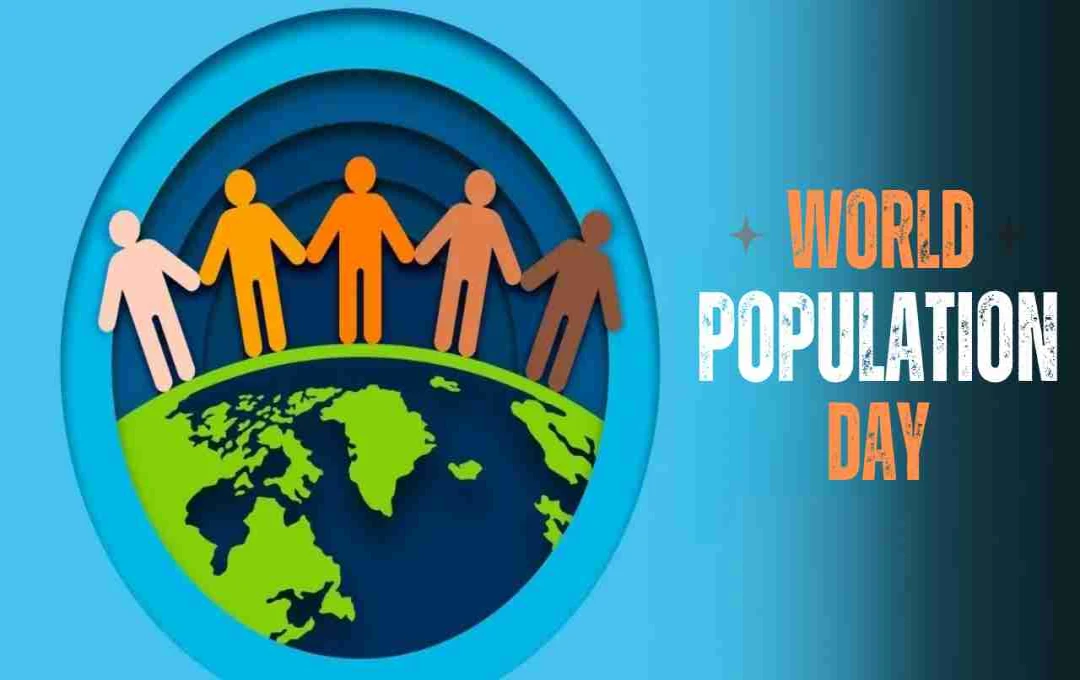Every year on July 11th, 'World Population Day' is observed worldwide. The purpose of this day is to make people aware of the adverse consequences of the increasing population and to explain that if it is not controlled in time, it could become a serious crisis for humanity in the future. Currently, over 8 billion people live on Earth, and this number is increasing by approximately 83 million every year. This raises the question: Do we have enough resources for such a large population?
History of World Population Day
This day was initiated in 1989 by the United Nations Development Programme (UNDP). Its main objective was to draw attention to the rapidly growing population of the world. It was inspired by 'Five Billion Day,' which was celebrated on July 11, 1987, when the world's population first crossed 5 billion. Since then, this day is celebrated worldwide to focus on population-related issues such as family planning, women's empowerment, poverty, maternal health, and education.
Why is Population Explosion Dangerous?

1. Burden on Natural Resources
The Earth's resources are limited - be it water, food, electricity, or energy. As the population grows rapidly, the consumption of these resources also increases. If this continues, there could be a severe shortage of drinking water and food grains in the future.
2. Impact on Education and Healthcare Facilities
A higher population directly affects health and education facilities. Government schools and hospitals become crowded, and resources start to dwindle. This leads to a decline in quality, and the poor are most affected.
3. Unemployment and Poverty
A significant impact of the growing population is on job opportunities. When there are more people and fewer jobs, unemployment increases. Unemployment leads to problems like poverty, crime, and social inequality.
4. Promoting Climate Change
The more people there are, the more pollution there will be. More cars, more factories, more energy consumption – all of these are accelerating the pace of climate change.
Some Surprising Facts
- In 2000, the average life expectancy was 67 years, which increased to 71 years in 2015 and is likely to be 77 years by 2050.
- Global fertility rates have declined since 1960, but the population is still growing because the death rate has decreased.
- Approximately 200,000 babies are born every day, while the number of deaths is much lower.
Family Planning: The First Step to a Solution
Family planning is the most effective way to control population growth. If every family responsibly decides on the number and spacing of their children, both the country and society will benefit. The government is running several schemes and awareness campaigns, but the real responsibility lies with society. Both men and women must actively participate in this direction.
How to Celebrate World Population Day?

- Spread Awareness: Share information on population issues through social media. Use the hashtag #WorldPopulationDay.
- Participate in Local Events: Attend seminars and workshops organized by schools, colleges, and NGOs.
- Volunteer: Join organizations working in the field of family planning and women's empowerment.
- Start with Your Family: Adopt family planning yourself and inspire others.
Teach Children the Importance of Population
Today's generation will become the responsible citizens of tomorrow. Therefore, it is necessary to make children aware of population-related issues from the beginning. They should be taught that a larger population means not only more people but also fewer resources and increasing problems.
World Population Day reminds us that the increasing population is not just a statistic but a big question mark on the future of humanity. If we do not become aware now, future generations will face serious crises. Paying attention to issues such as population control, education, health, and women's empowerment should be our priority in time. Awareness is the first step to a solution. Let's together lay the foundation for a balanced and secure future.















